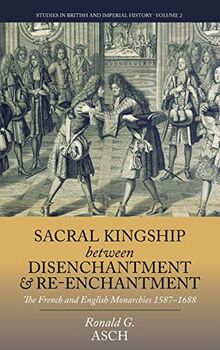
France and England are often seen as monarchies standing at opposite ends of the spectrum of seventeenth-century European political culture. On the one hand the Bourbon monarchy took the high road to absolutism, while on the other the Stuarts never quite recovered from the diminution of their royal authority following the regicide of Charles I in 1649. However, both monarchies shared a common medieval heritage of sacral kingship, and their histories remained deeply entangled throughout the century. This study focuses on the interaction between ideas of monarchy and images of power in the two countries between the execution of Mary Queen of Scots and the Glorious Revolution. It demonstrates that even in periods when politics were seemingly secularized, as in France at the end of the Wars of Religion, and in latter seventeenth- century England, the appeal to religious images and values still lent legitimacy to royal authority by emphasizing the sacral aura or providential role which church and religion conferred on monarchs.
Ronald G. Asch holds the Chair of Early Modern History at the University of Freiburg in Germany. He graduated from Tübingen University and previously taught in Münster and Osnabrück. He is an expert on sixteenth and seventeenth-century British and European history and has published monographs on the Thirty Years War and the history of the European nobilities in the early modern period as well as on the court of Charles I. His latest publication is Die Stuarts: Geschichte einer Dynastie (Munich, 2011). He is a member of the Heidelberg Academy of Arts and Sciences.